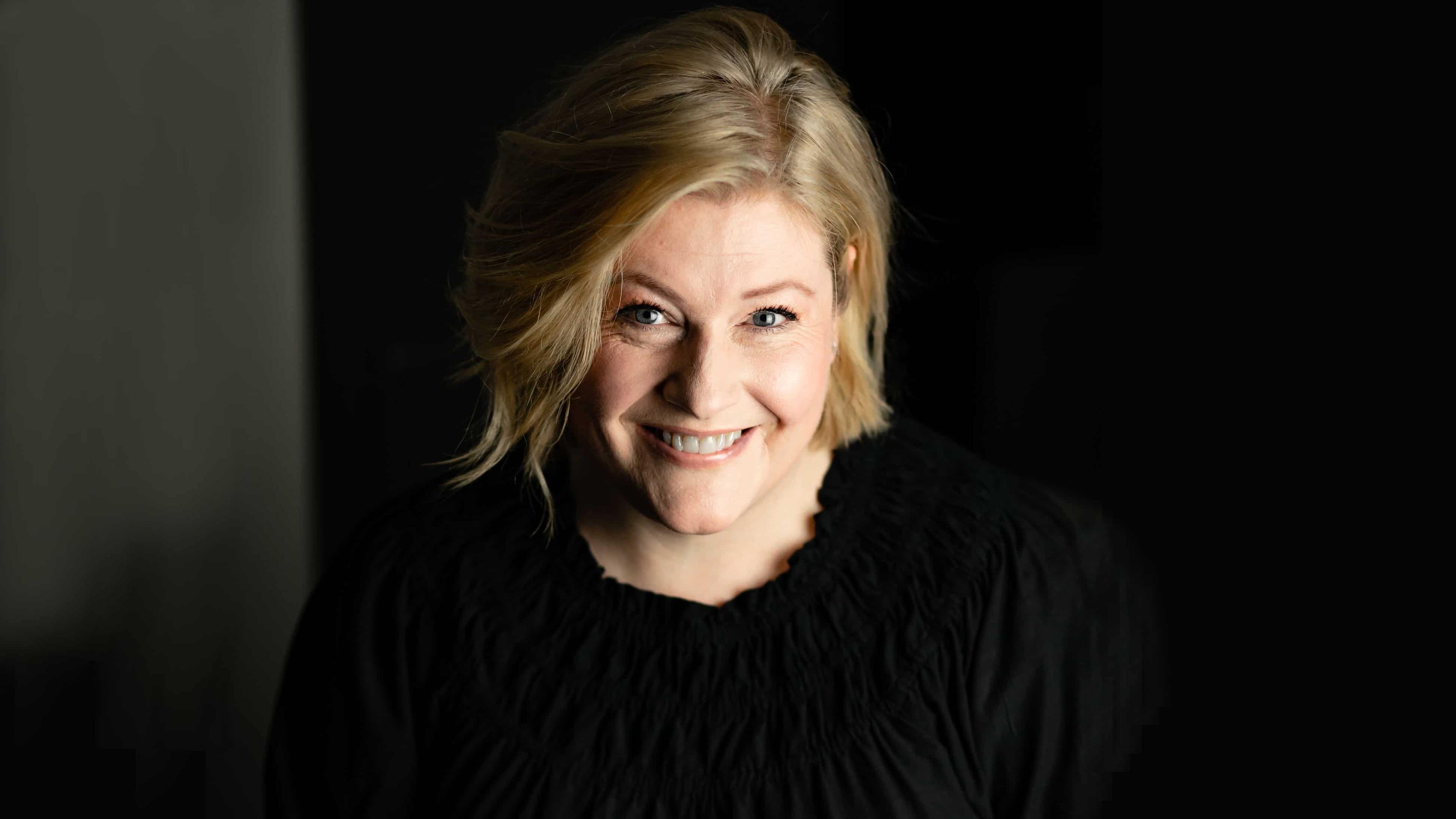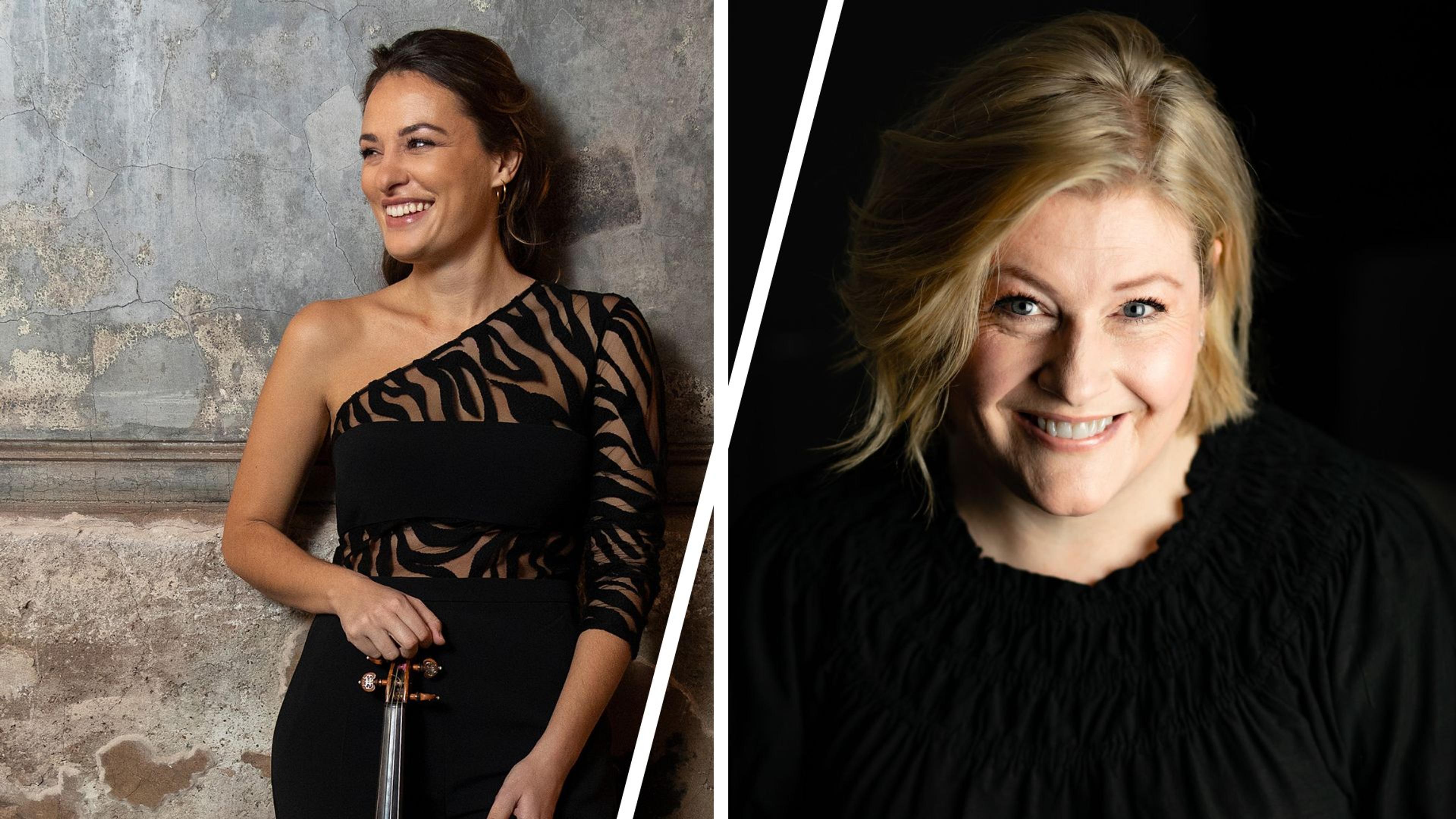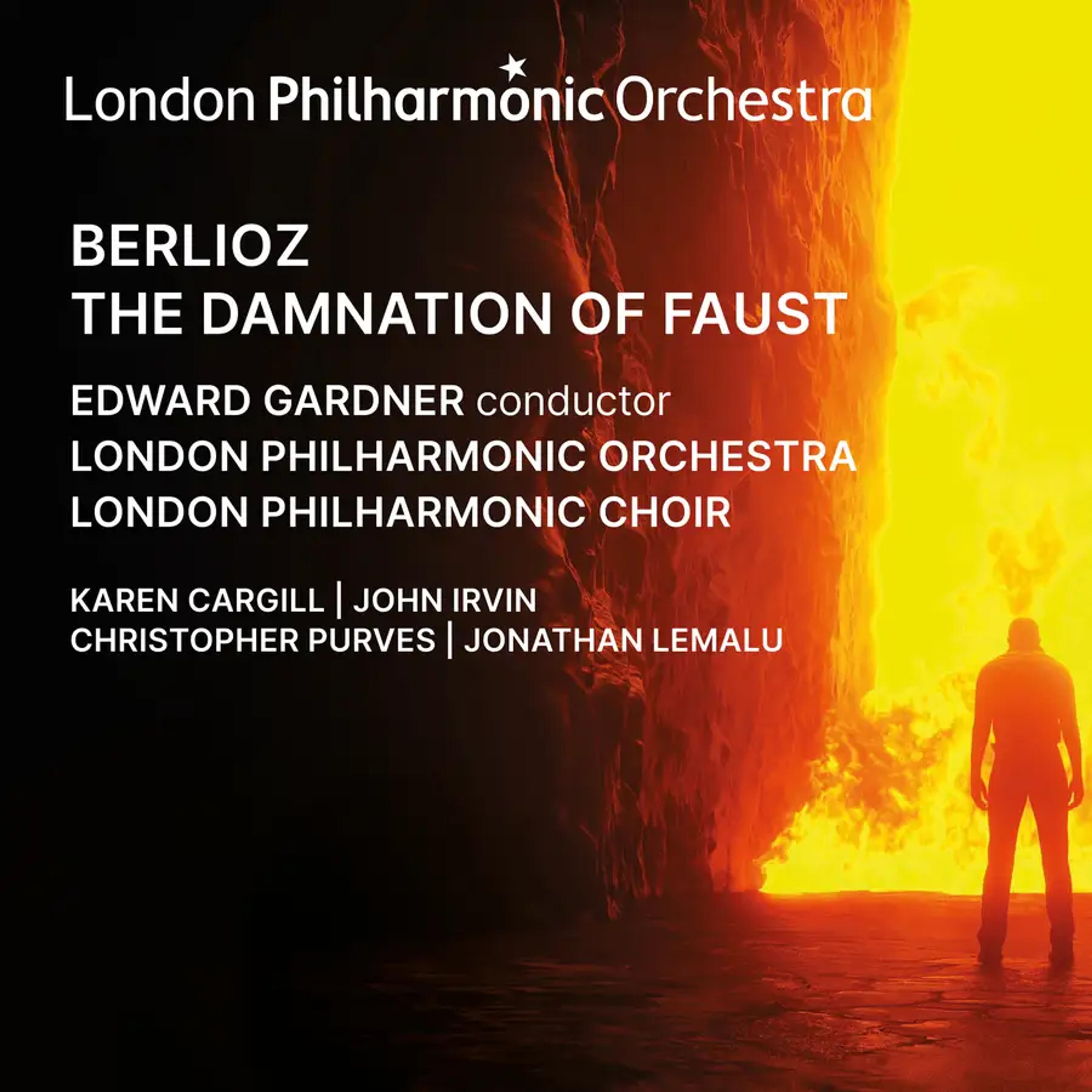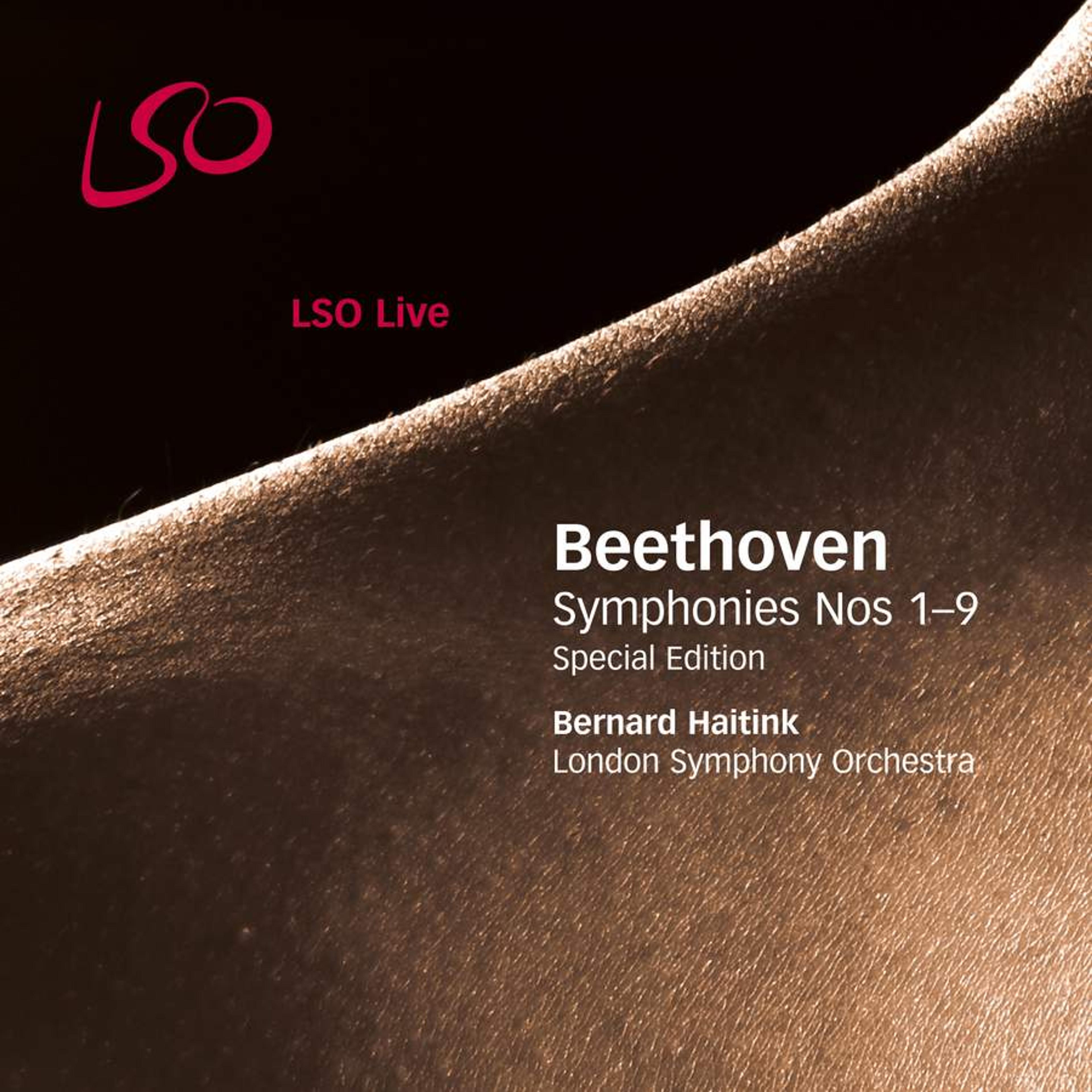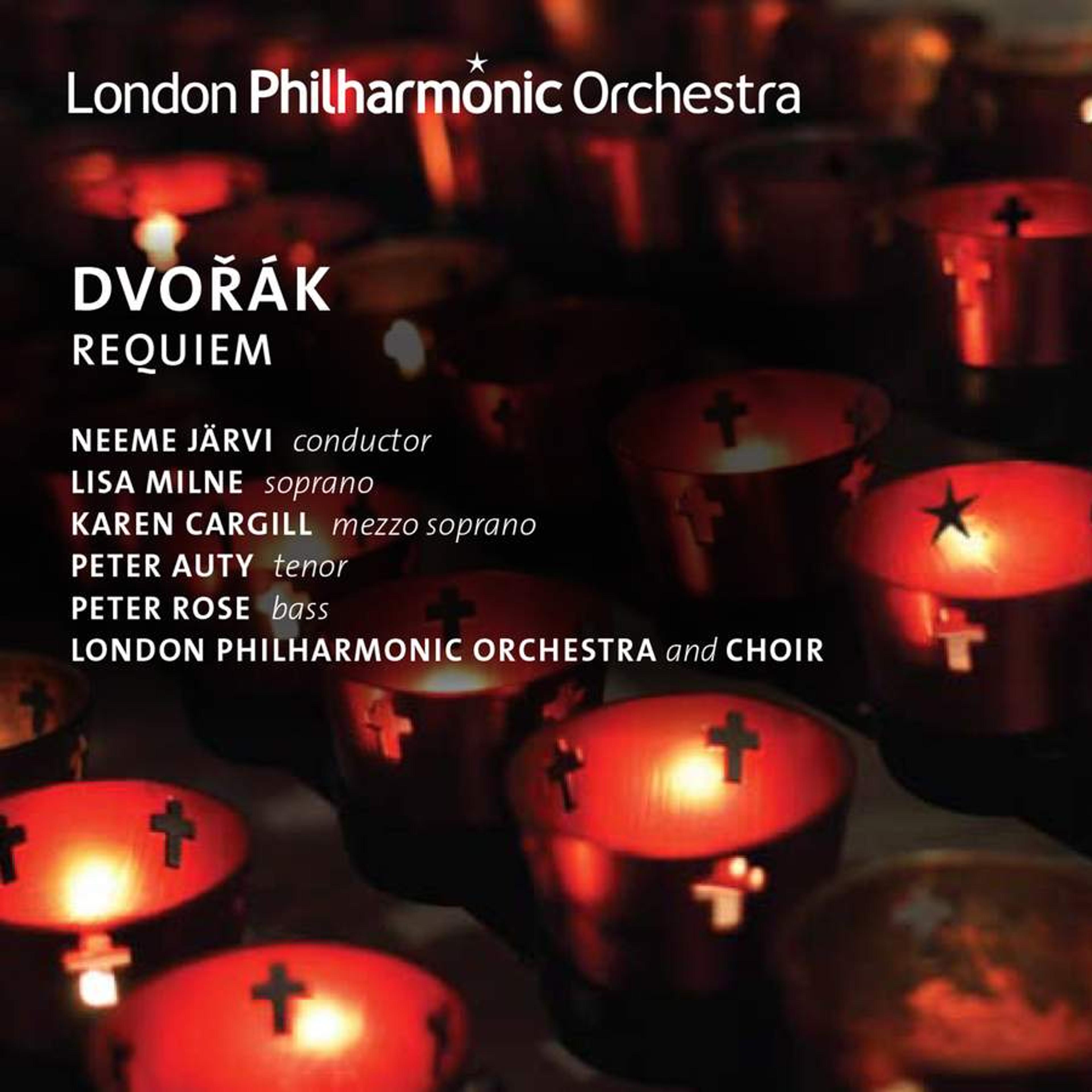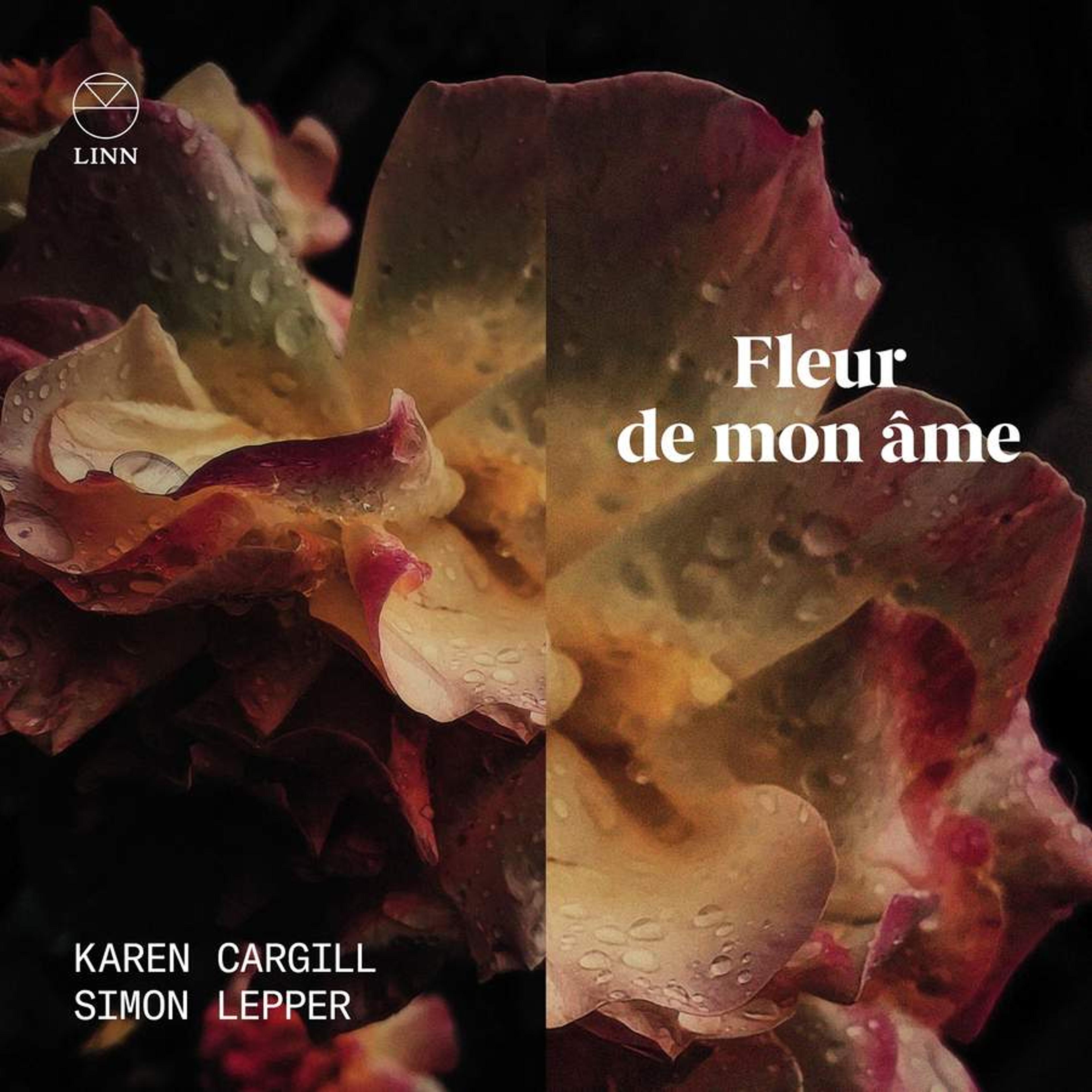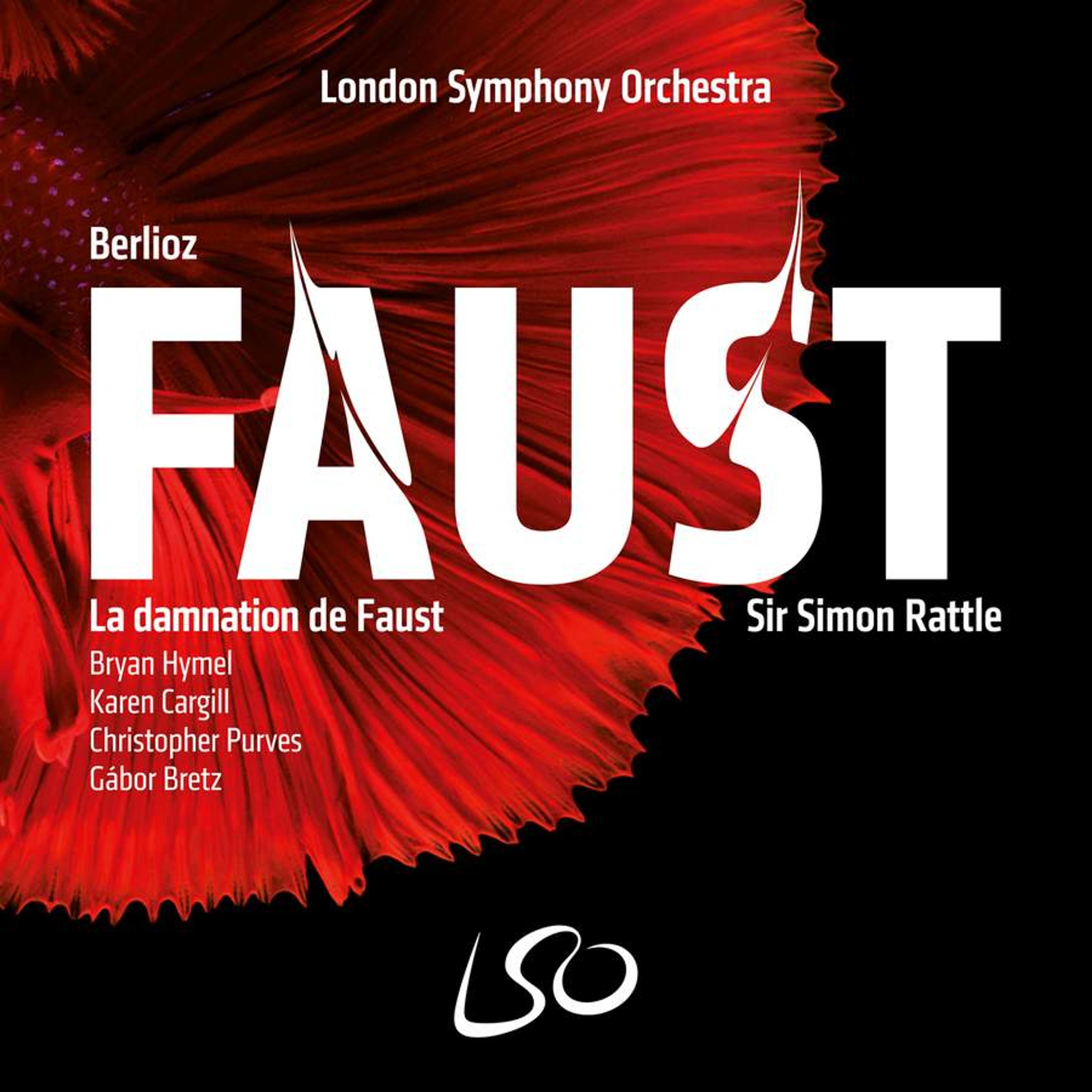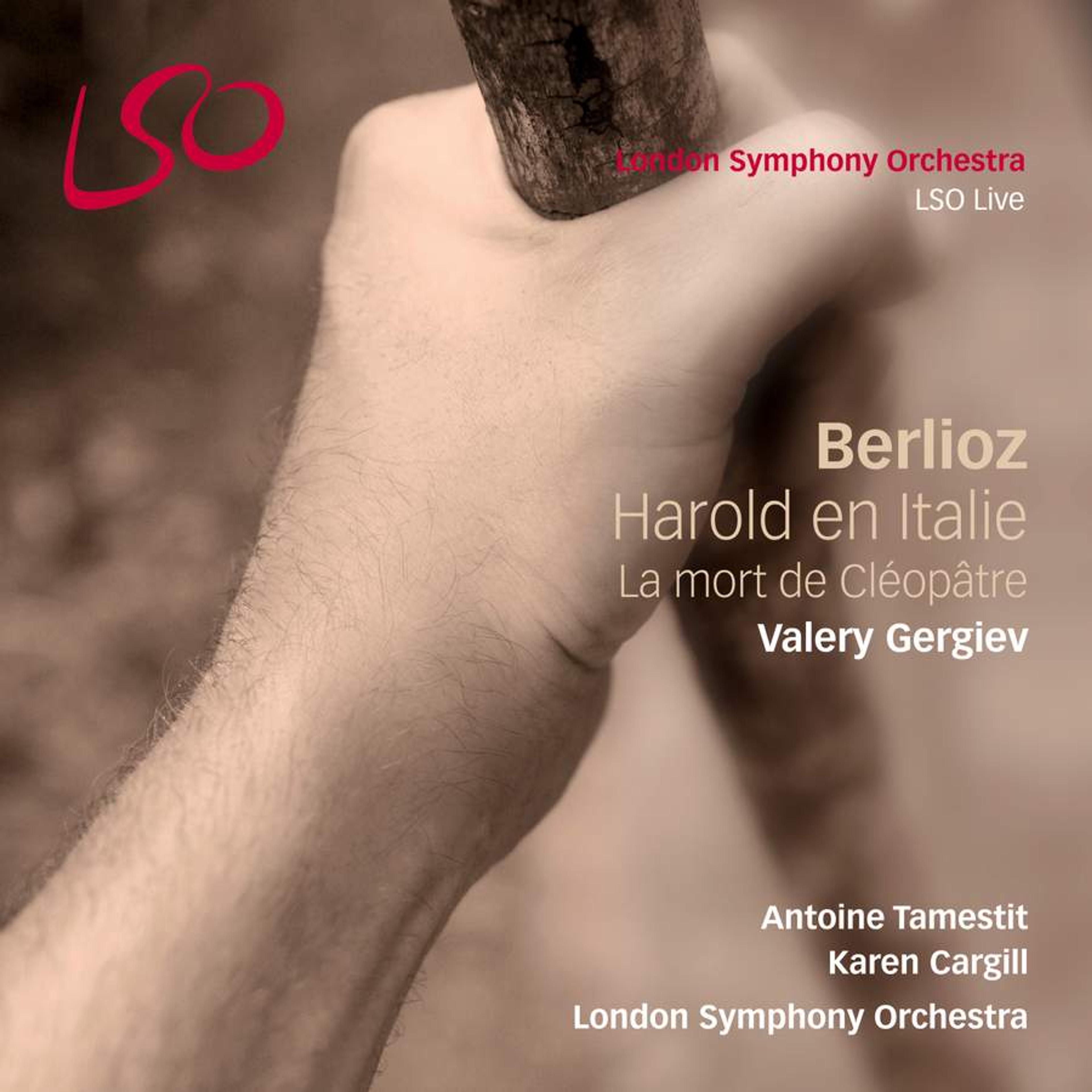KarenCargill
- Mezzo-Soprano
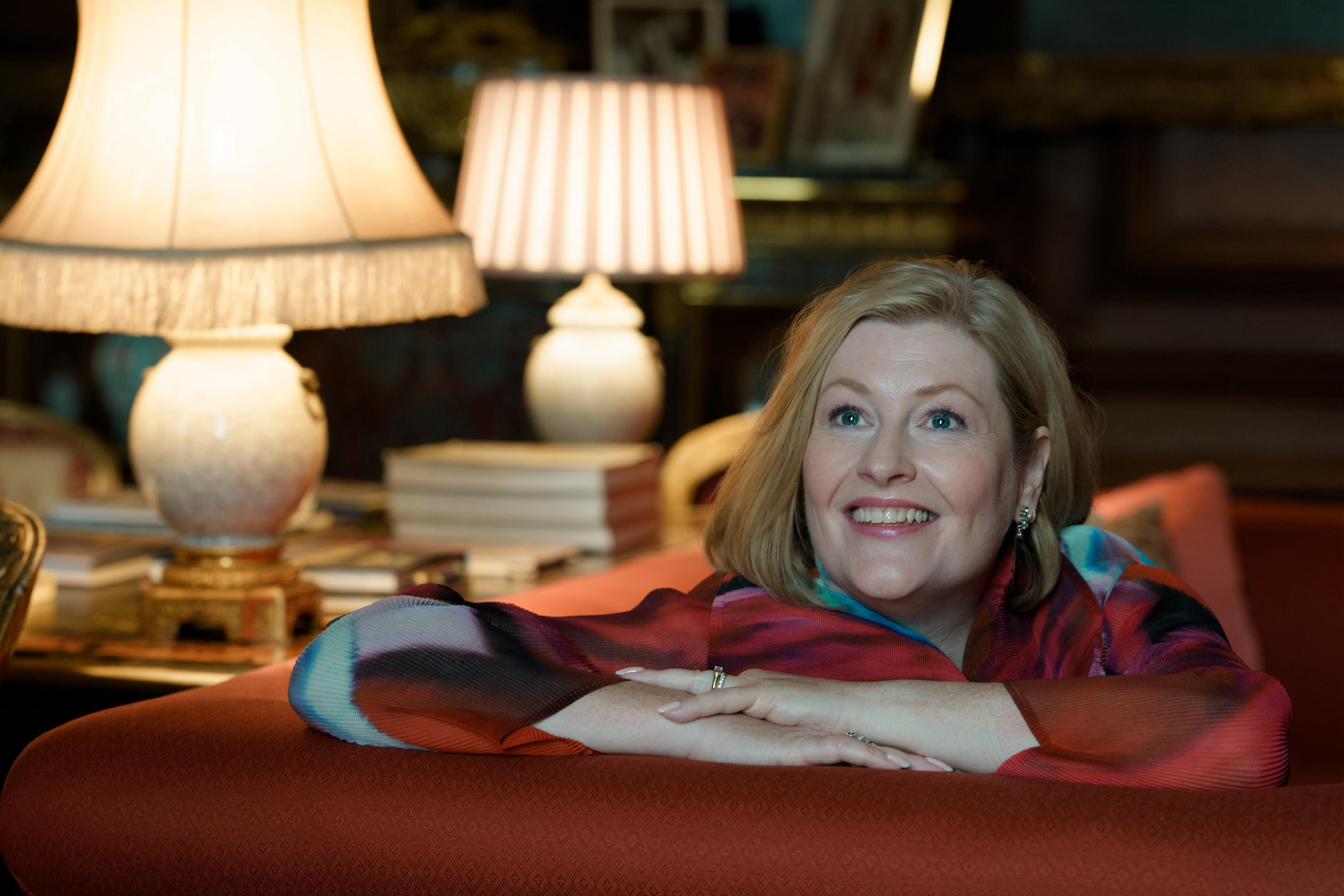

About Karen
Described as having a voice that “dazzles” with a “treacle-rich middle register” and a “full and rich top”, Karen Cargill has firmly established herself as one of the leading singers of her generation with upcoming engagements at the Metropolitan Opera, Bayerische Staatsoper, Dutch National Opera, Canadian Opera Company and Norwegian National Opera. Equally established on the concert stage, Karen regularly appears with conductors such as Sir Simon Rattle, Daniel Harding, Yannick Nézet-Séguin, Robin Ticciati, Rafael Payare and Edward Gardner.
Her 25/26 season includes several important operatic engagements including Judith Bluebeard’s Castle at the Canadian Opera Company and Adelaide Arabella at the Metropolitan Opera. Karen will also sing Geneviève Pelléas et Mélisande with Ryan Wigglesworth and the BBC SSO; Waltraute Götterdämmerung with Patrick Hahn and the Sinfonieorchester Wuppertal; Judith Bluebeard’s Castle with Rafael Payare and the San Diego Symphony Orchestra. Especially recognised for her interpretation of Mahler, Karen will perform Mahler 2 both with the Staatskapelle Berlin conducted by Sir Simon Rattle, and with the BBCSSO conducted by Sir Donald Runnicles; and Mahler 3 with the Helsinki Symphony Orchestra conducted by Jukka-Pekka Saraste. In addition, Karen will also appear with the Montreal Symphony Orchestra in La Damnation de Faust, conducted by Rafael Payare.
Her 2024/25 season saw her return to the role of Brangäne Tristan und Isolde at the Glyndebourne Festival, with Yannick Nézet-Séguin and the Philadelphia Orchestra, and with Sir Simon Rattle and the Bayerischer Rundfunk Orchestra. She also made her role debut as Brigitte Die Tote Stadt in concerts with the Boston Symphony Orchestra and Andris Nelsons; returned to the Montreal Symphony Orchestra for Schoenberg's Gurrelieder with Rafael Payare; the San Francisco Symphony for Verdi's Requiem with Esa-Pekka Salonen; the Toronto Symphony for Mozart's Requiem with Jukka-Pekka Saraste; and the San Diego Symphony for Mahler Symphony no. 3 with Rafael Payare.
With her recital partner Simon Lepper Karen has performed at Wigmore Hall London; Concertgebouw Amsterdam; Kennedy Centre Washington and Carnegie Hall New York, and regularly gives recitals for BBC Radio 3. With Simon, Karen also recently recorded a critically acclaimed recital of Lieder by Alma and Gustav Mahler for Linn Records, for whom she has previously recorded Berlioz Les nuits d’été and La mort de Cléopâtre with Robin Ticciati and the Scottish Chamber Orchestra. Karen is Patron of the National Girls’ Choir of Scotland and sang in the National Service of Thanksgiving and Dedication for King Charles III following his Coronation in 2023.
Representation
Worldwide general management with Askonas Holt
Season Highlights
Video
- Playing
Karen Cargill sings Mahler's Das Lied von der Erde with Cristian Măcelaru
Cristian Măcelaru (conductor), Karen Cargill (mezzo-soprano), Klaus Florian Vogt (tenor); Filmed in Cologne, Germany. Credit: WDR Symphony Orchestra
Karen Cargill sings Berlioz’s Les Nuits d’été with Valery Gergiev and the London Symphony Orchestra
Filmed in London, UK. Credit: Medici TV / London Symphony Orchestra
Karen Cargill sings Marguerite’s aria from La Damnation de Faust with Sir Simon Rattle
Sir Simon Rattle (conductor), Karen Cargill (mezzo soprano), London Symphony Orchestra; Filmed in London, UK. Credit: London Symphony Orchestra
News
Press
La Damnation de Faust (Marguerite)
Maison symphonique, MontrealSep 2025Karen Cargill was a standout as Marguerite, especially captivating in her King of Thulé aria.
- Ian Cochrane, Bachtrack
- 19 September 2025
Mendelssohn Elijah
Royal Scottish National Orchestra with Thomas SøndergårdAug 2025... the luscious mezzo of Karen Cargill, whose beautiful rendition of the great aria, ‘Woe unto them that forsake him’, was one of the highlights of the evening. In Part 2, her assumption of the ghastly role of Jezebel was brilliantly malignant, and her clear diction as she laid into Elijah was exemplary. We are indeed fortunate at the moment to have some of the finest mezzo-sopranos in the world all coming from Scotland, with Ms Cargill as the vanguard
- Brian Bannatyne-Scott, Edinburgh Music Review
- 24 August 2025
Among the soloists, mezzo Karen Cargill sang a quietly radiant angel, and enjoyed herself marvellously as a brief but bloodthirsty Jezebel.
- Simon Thompson, Bachtrack
- 25 August 2025
Karen Cargill took the mezzo soprano role of An Angel, a quieter and more contemplative role than the ones in which she is often heard, and she seemed to relish the opportunity, especially in the aria ‘Woe unto them’ where she produced a sotto voce tone of great beauty and intensity.
- W J Quinn, The Quintessential Review
- 25 August 2025
The fine set of soloists featured ... the quietly radiant mezzo-soprano of Karen Cargill.
- Simon Thompson, The Times
- 26 August 2025
The Dream of Gerontius
Netherlands Radio Philharmonic Orchestra with Karina CanellakisJun 2025Karen Cargill’s Angel fully embraced the dramatic narrative of Newman’s text. Her gentle, nurturing ruminations not only questioned, but provoked the Soul. Moments of great intimacy and dramatic climaxes interchanged seamlessly, laying bare the “bitterness of death”. Her hugely impressive dynamic range, especially in her lower register, challenged all.
- Clare Varney, Bachtrack
- 15 June 2025
Tristan und Isolde (Brangäne)
Philadelphia Orchestra with Yannick Nézet-SéguinJun 2025Karen Cargill’s high-lying mezzo made her a gleaming Brangäne, especially as it sailed from Marian Anderson Hall from her placement in the corner of the third tier during “Einsam wachend in der Nacht”. A veteran of the role, Cargill convinced absolutely as Isolde’s devoted and distraught companion.
- Cameron Kelsall, Bachtrack
- 02 June 2025
Karen Cargill was a compelling Brangäne, her mezzo-soprano rich and steady with a natural warmth that projected effortlessly from her position in the upper balcony during Act II. Singing from above heightened the scene’s tension while allowing her voice to float across the hall with a haunting clarity. She shaped her lines with care, imbuing Brangäne’s warnings with both urgency and restrained compassion.
- Edward Sava-Segal, Seen and Heard International
- 03 June 2025
Karen Cargill was a vocally glowing and dramatically engaged Brangäne. Her lovely, blonde-toned mezzo has the open upper register this role needs ... shimmering forth from the top-tier of Marian Anderson Hall, high above the stage.
- David Fox, Parterre Box
- 06 June 2025
Das Lied von die Erde
City of Birmingham Symphony Orchestra with Alpesh ChauhanMar 2025Chauhan adopted a more graceful, measured tone alongside Karen Cargill. Her solemnity was made poignant in Der Einsame im Herbst by the players sounding as if they were struggling, even tired. Its memories of love were like a technicolour flashback from a place of sepia sadness. Von her Schönheit was deliriously mixed, tilting from elastic refinement – flexing around Cargill’s tactile shaping of the words – into a rip-roaring middle episode, evidently worked-up into a frenzy by the proximity of “the lads”. Despite some ragged orchestral coordination in Der Abschied, Cargill held it together like superglue. Her intensity led to periods of heart-stopping focus and stillness, and when she fell silent Chauhan established another connection, in the music’s foreshadowing of Mahler’s Ninth. Passing through some notes of desperation in the woodwinds, we somehow found ourselves in a modern perspective of the bucolic simplicity we had heard at the start of the Pastoral, before Cargill serenely vanished before our ears.
- Simon Cummings, Bachtrack
- 07 March 2025
Das Lied von der Erde
National Symphony Orchestra with Jessica CottisFeb 2025A contrasting tenderness was the overriding characteristic of Karen Cargill’s interpretation of the melancholic second song ‘Der Einsame im Herbst’... Cargill delivered a vocal performance that encapsulated both the haunting bleakness and rapturous joy inherent in one of Mahler’s most personal movements.
- Adrian Smith, The Journal of Music
- 21 February 2025
Die tote Stadt (Brigitta)
Boston Symphony Orchestra with Andris NelsonsJan 2025Karen Cargill as Brigitte - in utter luxury casting - made the most of every rich note and textual nuance.
- David Shengold, Opera News
- 27 February 2025
The character of Brigitta, executed with resolute acumen by Karen Cargill, enters the story as Paul’s housekeeper. Had this been a Greek tragedy, she would double as the coryphaeus who warns the hero of the folly of his hubris.
- John Tamilio III, The Boston Musical Intelligencer
- 01 February 2025
Karen Cargill brought a zesty and vibrant personality to Brigitta, Paul’s upright housekeeper... she looked as if she’d stepped out of an Expressionist painting.
- Cameron Kelsall, Bachtrack
- 31 January 2025
Tristan und Isolde (Brangäne)
Glyndebourne with Robin TicciatiJul 2024Karen Cargill had suffered an injury, but gamely sang Brangäne from the wings... Cargill is one of those singers whose presence on a cast list immediately inspires confidence and her warm, treacle-rich middle register was ideally suited to the role. Empathy, concern, guilt all suffused her performance as the opera unfolded.
- Dominic Lowe, Bachtrack
- 31 July 2024
Her vocal performance was thrilling...
- Sam Smith, Muisc OMH
- 31 July 2024
Karen Cargill – injured in rehearsal... – sings Brangäne magnificently from the wings...
- Michael Church, iNews
- 30 July 2024
...Cargill sings magnificently...
- George Hall, The Stage
- 30 July 2024
Karen Cargill may have suffered a nasty fall which impaired her mobility, but her voice remained supremely agile in her role as Isolde’s faithful maid, Brangäne. She sang with remarkable projection.
- Mike Hardy, OperaWire
- 02 August 2024
Die Walküre (Fricka)
Tour with Rotterdam Philharmonic and Yannick Nézet-SéguinApr 2024This Wotan clearly came off second-best in his encounter with an imperious, vengeful and bitter Fricka; Karen Cargill berated her errant husband fearsomely right up to her last emphatic consonant.
- Jim Pritchard, Seen and Heard International
- 29 April 2024
Theatrically committed and visibly experienced on stage, Karen Cargill is an imperious, vindictive Fricka, whose authoritative, incisive vocals change the course of fate in just ten minutes.
- Pierre Degott, ResMusica
- 29 April 2024
Faced with Karen Cargill's prodigious sovereign Fricka (a very good actress with a triumphant mezzo), he can only be defeated.
- Christine Ducq, ForumOpera.com
- 06 May 2024
And then, finally, there's Karen Cargill, a sumptuous Fricka, whose meticulously honed argument can be savored like a brilliant theatrical number, slowly but surely pushing Wotan to the point of apoplexy. Certainly the high point of an intense, but uneven evening.
- Laurent Barthel, Concerto Net
- 04 May 2024
Last but not least, Karen Cargill is an absolutely extraordinary Fricka. Incredibly invested dramatically (she's totally liberated from her score), she's undoubtedly the most energetic and theatrical of the cast. As for her voice, it literally dazzles: a marvellous mezzo with dark colors, yet capable of dagger-like high notes. A sign that is not misleading: the famous "household scene" with Wotan, which, interpreted by lesser singers, sometimes becomes a real "tunnel", is literally transfigured here to the point of appearing as the best scene in the opera!
- Pascal Lelièvre, Première Loge
- 06 May 2024
Karen Cargill's Fricka is fierce and vengeful. She possesses the greatest dose of energy of the entire solo ensemble and is very outspoken in her demands in Deiner ew'gen Gattin heilige Ehre.
- Olga De Kort, Place de l'Opera
- 02 May 2024
Brian Mulligan as Wotan is just as convincing with his extremely high bass as Karen Cargill as Fricka with her multi-faceted mezzo-soprano.
- Alexander Walther, Online Merker
- 29 April 2024
Verdi Requiem
BBC National Orchestra of Wales with Ryan Bancroft (BBC Proms)Jul 2024Scottish mezzo-soprano Karen Cargill was equally magnetic, from silken top notes to imperious bottom. A preternaturally communicative singer, she had a personal message, it seemed, for everyone in the hall. Her sympathetic partnership with Moore was one of the evening’s bel canto glories.
- Clive Paget, The Guardian
- 24 July 2024
...mezzo Karen Cargill, the multifaceted jewel in this Requiem’s crown. Cargill dared so much, drawing you in across the spaces with slivers of sound, winning total intimacy before pulling out all the stops again in chest voice and top-note brilliance
- David Nice, The Arts Desk
- 24 July 2024
Mezzo Karen Cargill was the voice of authority, announcing that all is written in the Book of Judgement (and apparently unfazed by having a camera thrust almost into her face as she did so)... There were many vocal highlights to savour... a meltingly glorious duet between Moore and Cargill for “Juste judex”
- David Karlin, Bachtrack
- 24 July 2024
Mezzo Karen Cargill’s instrument is like butter with attitude (her opening statement of ‘Liber scriptus’ combined opulence and pinpoint accuracy, and the subsequent clipped Ts and rolled Rs added delicious menace), and the most magical moments of the whole evening came from the Recordare duet between Moore and Cargill. Both of them clearly knew the work inside out, and, between them, they created a vocal synergy that is so rare, but so marvellous when it happens.
- Barry Creasy, Music OMH
- 23 July 2024
Bluebeard's Castle (Judith)
Boston Symphony Orchestra with Karina CanellakisFeb 2024Cargill was full and rich at the top…she nailed her high C at the opening of the fifth door, and she was touching when Judith tells Bluebeard “Hallgass, hallgass, itt vagyok még” (“Look! Look! I’m still here”) even as he’s assimilating her.
- Jeffrey Gantz, The Boston Musical Intelligencer
- 10 February 2024
Karen Cargill brought similarly admirable dramatic instincts to Judith…she charted Judith’s journey from lovesick young bride to Bluebeard’s latest resigned casualty with intense fervor.
- Cameron Kelsall, BachTrack
- 11 February 2024
Karen Cargill, led the way with some gleaming high notes and a steely lower register…the mezzo brought fire to her character’s demand for the final door to be opened.
- Jonathan Blumhofer, Boston Classical Review
- 09 February 2024
Scottish mezzo-soprano Karen Cargill made a dramatically savvy and vocally powerful Judith, hues of innocence, curiosity, love, and despair flickering across her face as well as her voice. Her repeated intonations of “Szeretlek” (“I love you”) sounded achingly sincere.
- A.Z. Madonna, The Boston Globe
- 09 February 2024
Verdi Requiem
Metropolitan Opera with Yannick Nézet-SéguinSep 2023Leah Hawkins and Karen Cargill were simply superb, and especially effective when singing together. It is amazing that two such dissimilar voices could blend so perfectly...Cargill’s voice is a remarkable column of sound that is even from top to bottom. It has a presence that was as impressive in the bold proclamation of the “Liber scriptus,” as it was soaring so beautifully in the moving “Lux aeterna.”
- Rick Perdian, New York Classical Review
- 28 September 2023
Scottish mezzo-soprano Karen Cargill’s vocal qualities were well-matched with Polenzani’s, the pair sounding natural together even though Cargill is a dramatic mezzo and Polenzani a lyric tenor. The alignment mostly resided in the smooth, brassy sound. Cargill, a Grammy nominee, has performed in multiple Wagner operas, and there’s little wonder why. She has serious power and a broad range that dives deep and soars high with equal firmness, making her voice a velvet hammer.
- Chris Ruel, Opera Wire
- 28 September 2023
The mezzo-soprano Karen Cargill and the soprano Leah Hawkins, soloists in the Requiem, admirably held together their own exposed singing in the “Agnus Dei,” ...the “Recordare” duet, in which Cargill and Hawkins closely collaborated as musical partners while offering distinct interpretations: Cargill, pitiful, prayerful, humbled; Hawkins, persuasive in recounting the beauty of Jesus’ sacrifice.
- Oussama Zahr, New York Times
- 29 September 2023
Dialogues des Carmélites (Mère Marie)
BBC Proms with Robin TicciatiAug 2023Karen Cargill as Mother Marie sang with magnificent body and force, ringing true and clear.
- Andrew Lohmann, London Unattached
- 08 August 2023
Mother Marie began as simply a rather forbidding figure, but charged by the dying Old Prioress to watch over Blanche, her role increased and she almost dominated the second half. Karen Cargill combined a mesmerising stage presence with a superb feel for the music, this was a highly charged yet intensely controlled performance where physical presence, text and phrasing combined. Cargill brought a richly expressive phrasing to every sculpted utterance, yet she was expressive throughout as she has a very speaking countenance, whatever was going on this Mother Marie was reacting to it. And as the second half developed, you felt the way Cargill showed that Mother Marie's faith really burned. In many ways, Mother Marie is the engine of the whole opera, and Cargill did not disappoint bringing a sense of power and intensity to the role, always there yet never dominating.
- Robert Hugill, Planet Hugill
- 08 August 2023
Karen Cargill played Mother Marie with a pragmatic warmth and generosity...
- Peter Reed, Classical Souce
- 07 August 2023
...Karen Cargill’s strong voice filled the hall to perfection.
- John Rhodes, Seen and Heard International
- 08 August 2023
Matthew’s psychological realism was more than matched by Karen Cargill as Mother Marie of the Incarnation. Cargill had intense dramatic and vocal presence, and the imposing breadth and depth of her mezzo conveyed every atom of fierce maternal love and defiance. Negotiating the high, angular lines with absolute assurance, Cargill made us feel the emotive power of Mother Marie’s expressions of spiritual commitment, the high standards she inspired as she pressed her sisters to take the vow of martyrdom. This only made her own guilt, as a survivor, more poignant.
- Claire Seymour, Opera Today
- 09 August 2023
Dialogues des Carmélites (Mère Marie)
Glyndebourne Festival with Robin TicciatiJun 2023First the music: with a star lineup that included Karen Cargill as a sympathetic Mother Marie, voice resonant with meaning and gradation...the ensemble of nuns was sharply characterised.
- Fiona Maddocks, The Guardian
- 17 June 2023
Karen Cargill was a deeply affecting Mère Marie, her cavernous mezzo-soprano rich and agile at the top. In Cargill’s empathetic Marie we saw a maternal warmth to her sisters and a fearsome defiance to the mob in Act 2. Her survivor’s guilt, aching and sorrowful, was plangently depicted.
- Dominic Lowe, Bachtrack
- 12 June 2023
Karen Cargill made a splendid Mother Marie, who must hold things together after the death of the old Prioress...
- Mark Ronan, The Article
- 13 June 2023
Karen Cargill’s Mère Marie tussles and prowls like a wounded animal...Karen Cargill had a similarly raw and desperate quality to her voice, and was unafraid of finding guttural – even rough – parts of her volcanic mezzo, especially in the intense final sequences of the opera.
- Benjamin Poore, Opera Wire
- 16 June 2023
★★★★ Karen Cargill’s Mother Marie is vocally ferocious...
- Flora Willson, The Guardian
- 11 June 2023
Déployant un lyrisme bouleversant, Karen Cargill incarne une Mère Marie de l’Incarnation à l’autorité fulgurante, mais aussi très humaine. Deploying a moving lyricism, Karen Cargill embodies a Mother Mary of the Incarnation with dazzling authority, but also very human.
- Hervé König, Anaclase
- 21 July 2023
La Damnation de Faust (Marguerite)
London Philharmonic Orchestra & Edward GardnerFeb 2023Karen Cargill sang Marguerite with a moving plangency; her mezzo-soprano has the quality of Baileys: thick and creamy, decidedly warming. With some clean higher notes and clear articulation, she made her sweetly sung “D'amour l'ardente flamme” one of the evening’s highlights.
- Dominic Lowe, Bachtrack
- 06 February 2023
Suor Angelica (La Zia Principessa)
Scottish Opera & Stuart StratfordMar 2023It turns out to be the Aunt of Suor Angelica, Karen Cargill, implacable in a raspberry suit. It is an outstanding performance, leaving the audience with the lurking thought that she is villainous enough to tell her niece the child has died just to stop the questions, and thoughtless of the consequences.
- Catriona Graham, Opera Critic
- 26 March 2023
At the centre of the plot is the entry of Karen Cargill’s Princess, who presents a comprehensive portrayal of the evil aunt wishing to take away Angelica’s inheritance while telling of Angelica’s dead son. Rather than a sentimental portrayal this is a terribly realistic dramatisation of humanity’s wickedness.
- Gregor Tassie, Seen and Heard International
- 17 March 2023
Daily convent life makes for a slow burn in Suor Angelica (Sister Angelica) until Karen Cargill, as the Princess, makes her commanding entrance and delivers bad news to her niece Angelica...
- Susan Nickalls, The Scotsman
- 13 March 2023
There was a lively ensemble of workaday nuns, but the stand-out was Karen Cargill as the aunt, giving an immense performance, a study in raw cruelty.
- David Smythe, Bachtrack
- 13 March 2023
Discography
- Berlioz: The Damnation of Faust
- Beethoven: Symphonies Nos. 1-9
- Dvořák: Requiem, Op. 89
- Fleur de mon âme
- Berlioz: La damnation de Faust
- Berlioz: Harold en Italie & La mort de Cléopâtre
- Bruckner: Mass No. 3 in F Minor, WAB 28 (Nowak Edition) [Live]
- Berlioz Odyssey
- Alma & Gustav Mahler: Lieder
- Berlioz: L'Enfance du Christ, Op. 25















